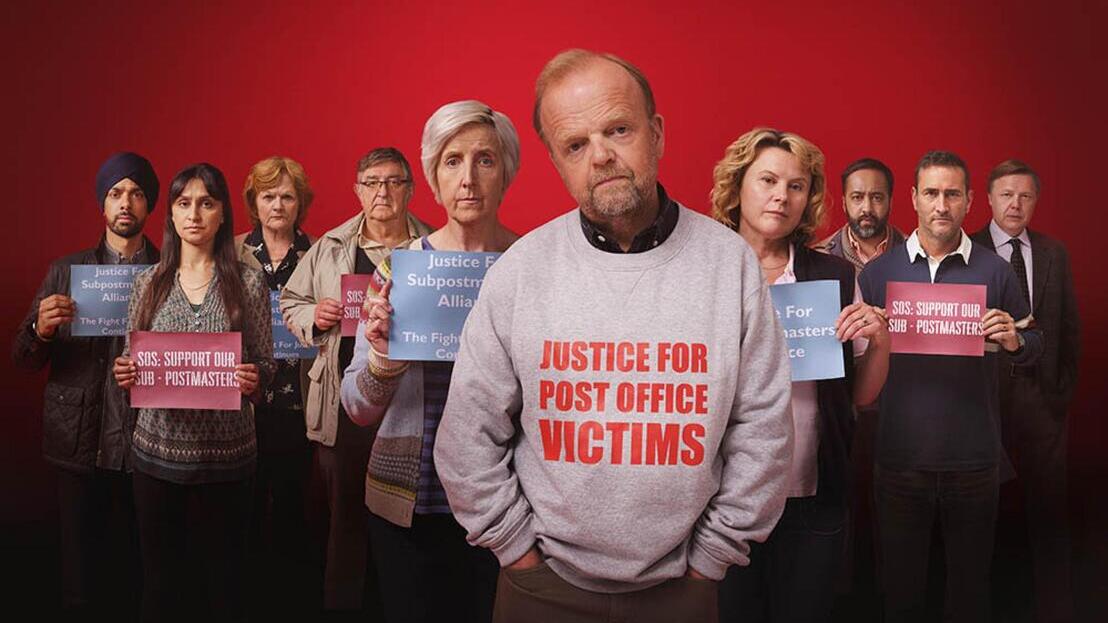Mr Bates vs. the Post Office has become ITV’s biggest new drama in over a decade, even beating the launch of Downton Abbey in 2010, according to figures supplied by ITV.
The ITV Studios and Little Gem series has now averaged 9.8m viewers across its four episodes, including seven day viewing across all devices plus pre-TX viewing.

The first episode of the drama launched on New Year’s Day. It is based on the real-life story of postmaster Alan Bates, played by Toby Jones, who drove the campaign to expose the Post Office Horizon IT scandal. It has sparked renewed press interest in the scandal, paving the way for more postmaster convictions to be overturned.
Including post-seven day catch up viewing, the first three episodes have now all been watched by over 10.6m viewers, with the launch currently averaging 10.9m after ten days of catch up.
ITV said it is the biggest drama across all channels since Line of Duty series six on BBC One in 2021 and is the biggest new drama across all channels since Bodyguard on BBC One in 2018.
The broadcaster also said it is ITV’s biggest drama since Broadchurch in 2017 and that the four episodes are the most watched programmes on any channel so far this year.
You are not signed in
Only registered users can comment on this article.

Oscars to livestream exclusively on YouTube in 2029
YouTube has secured exclusive global rights to the Oscars – including red carpet coverage, behind-the-scenes content, Governors Ball access, and more – from 2029 to 2033.

BBC Charter Review seeking input on generating more commercial revenue
Culture Secretary Lisa Nandy has launched a review of the BBC’s Royal Charter, with priorities aimed at bolstering trust in the broadcaster and increasing financial sustainability.

Netflix leadership lays out case for Warner Bros Discovery deal
Netflix Co-CEOs Greg Peters and Ted Sarandos have stressed their belief that the streamer’s planned $83bn acquisition of Warner Bros Discovery will go ahead, despite a hostile bid from Paramount Skydance.

UK facilities Halo Post and Evolutions placed into administration
Just months after being acquired by leading UK post-production company Envy, post houses Halo Post Production and Evolutions have been placed into administration.

UK government names Creative Industries Council members
The UK government has named the new members of its Creative Industries Council (CIC), its strategic forum for collaboration with industry leaders.



